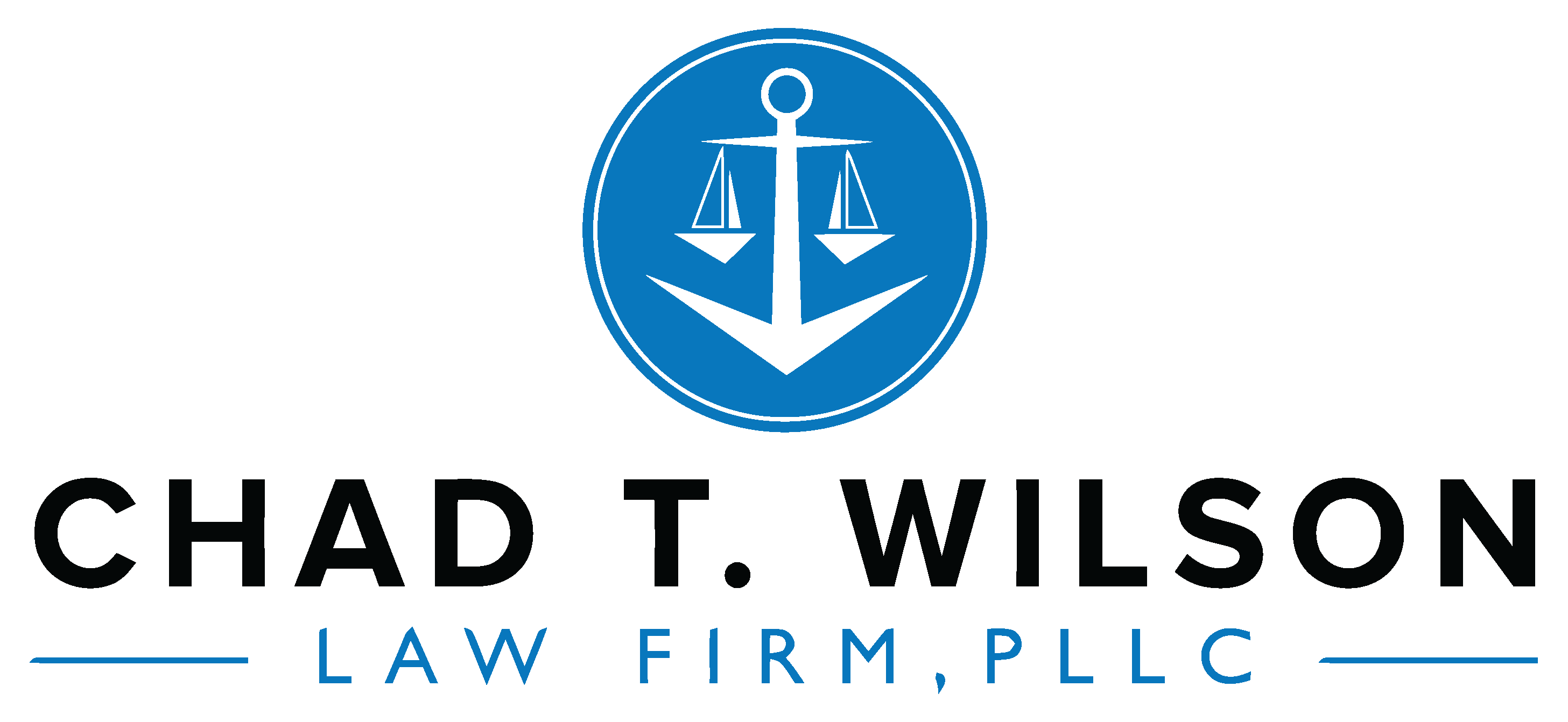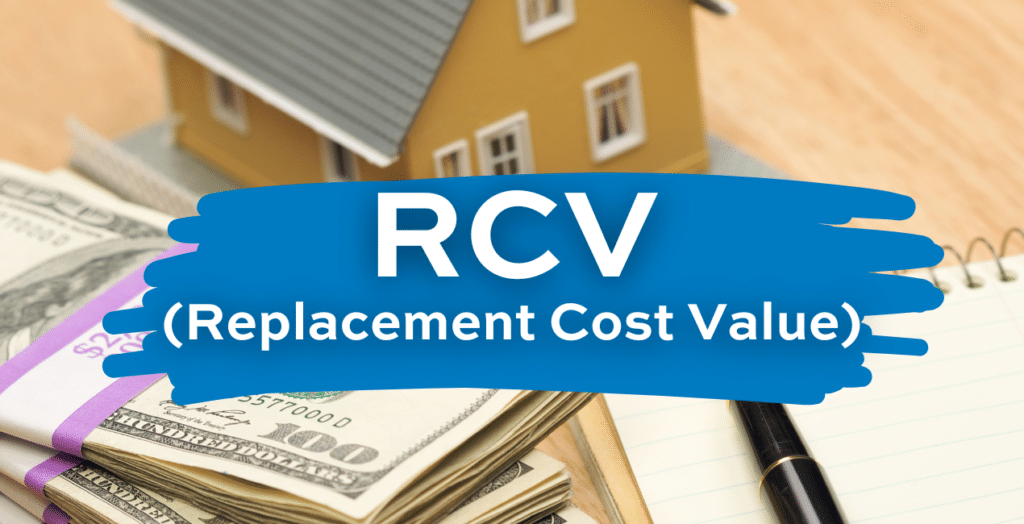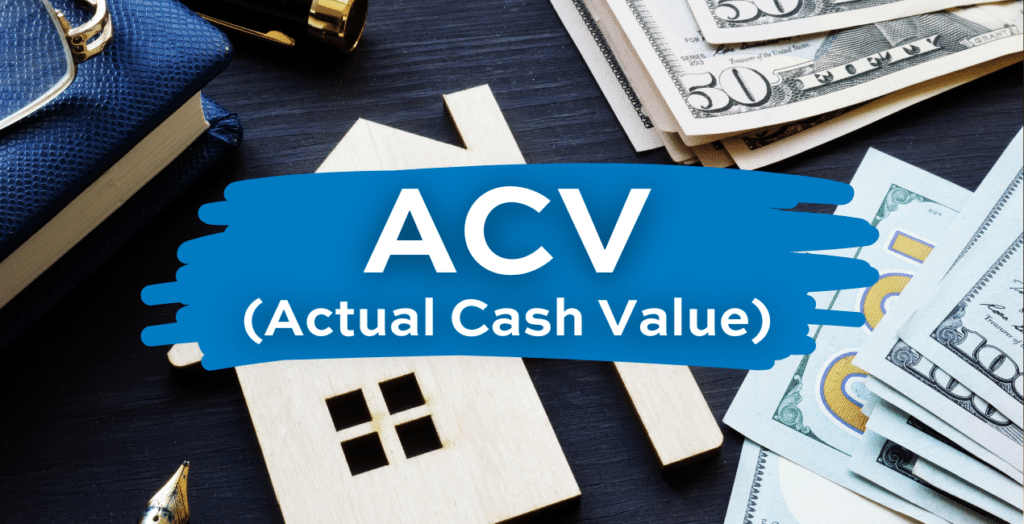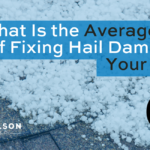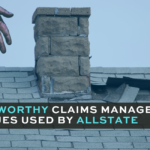Chad T. Wilson – What Is the Difference Between RCV and ACV Coverage? (2024)
April 25th, 2024
Source: https://cwilsonlaw.com/
https://www.opic.texas.gov/residential-property-insurance/basics/acv-vs-rcv/
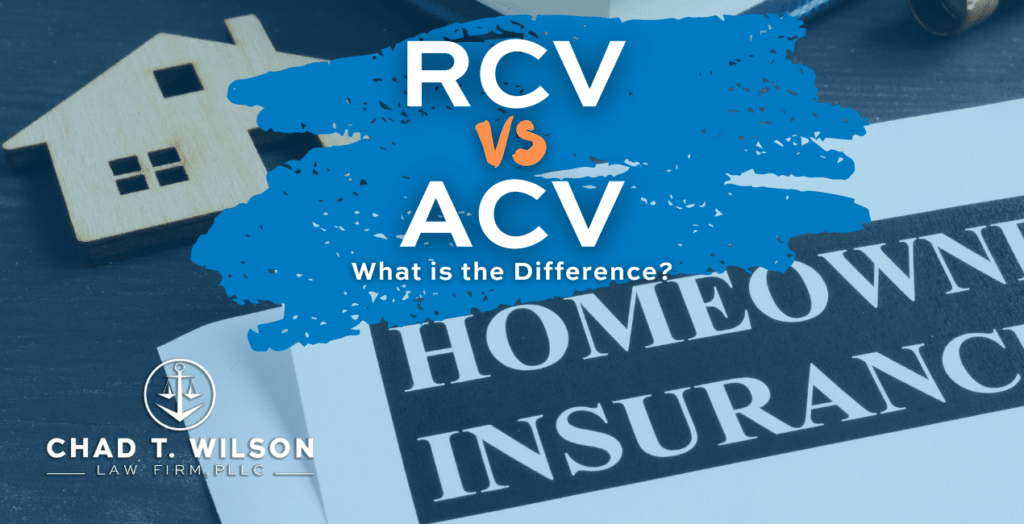
So what is the difference between RCV (replacement cost value) insurance and ACV (actual cash value) insurance?
What is RCV and ACV?
If you have replacement costs or RCV coverage, your insurance policy will pay the cost to repair or replace your damaged property without deducting depreciation.
If you have actual cash value or ACV coverage, your insurance policy will pay the depreciation costs to repair or replace your damaged property.
Regardless of what type of policy you have, the company will first pay you the ACV of an item, which means depreciation will be withheld.
If your policy allows RCV coverage, once the property is replaced, they will release the deductible depreciation, giving you the full replacement cost of your policy. If you upgrade your policy, the difference will be your financial responsibility as the insurance company will not allow the upgrade.
All additional estimates must be submitted to your insurance company for approval. If you’re not sure what type of coverage you have, check the declarations page of your home insurance policy to see if it offers replacement cost coverage.
If it specifies a replacement cost, then you will benefit from replacement cost coverage. If it doesn’t specify a replacement cost, your policy likely only covers actual cash value. Remember that there are different ways for your insurance company to handle your claim, depending on the type of insurance policy you have.
Replacement Cost Value
Replacement cost settlement ensures that you receive compensation equivalent to the current market value needed to replace a damaged item. Let’s consider the case of replacing a 10-year-old roof, which is estimated to cost $30,000. With a deductible of $1,500 and a recoverable depreciation of $15,000, the insurance company initially provides an Actual Cash Value (ACV) payment of $13,500. Upon completing all necessary repairs, you become eligible to claim the remaining $15,000 in recoverable depreciation.
This means you can potentially recover up to $28,500 after all claim payments have been processed, ultimately covering just your deductible. The insurance payout calculation involves deducting the recoverable depreciation and deductible from the cost of the new roof, resulting in an initial payment of $13,500. Subsequently, once repairs are finalized, you can claim the remaining $15,000 in recoverable depreciation, leading to a total insurance claim settlement of $28,500 after all adjustments have been made.
Actual Cash Value
Now, let’s consider a scenario where we compare the insurance settlement approaches. An Actual Cash Value (ACV) settlement allows the insurer to compensate you for the cost of repairing or replacing your property, minus depreciation. Depreciation, representing the decline in asset value over time due to age or usage, is calculated at $1,000 per year. For instance, if the cost to replace a 10-year-old roof is $30,000, with a deductible of $1,500 and an irrecoverable depreciation of $15,000, the ACV payment from the company would amount to $18,500.
Under your insurance policy, your out-of-pocket expense will be limited to your deductible amount. In the case of a Replacement Cost Value (RCV) policy, you might also need to cover the recoverable depreciation. Keep in mind that the insurance company won’t automatically reimburse you for recoverable depreciation; you’ll need to provide supporting documentation, like paid receipts for repairs and relevant photos. You’ll have a specific timeframe to submit these documents for the company to consider releasing any recoverable refund funds.
The insurance payment is calculated by taking the cost of the new roof, which is $30,000. Next, you subtract the depreciation, which is $1,000 per year over 10 years, giving you a total depreciation of $10,000. Then, subtract the deductible of $1,500. This results in a total insurance payment of $18,500.
You will be responsible for your deductible and the remainder of the difference. As evident, the same damage can yield varying insurance payments. While an Actual Cash Value (ACV) policy typically offers lower premiums compared to Replacement Cost Value (RCV) policies, the latter aims to fully compensate the policyholder for covered losses. Understanding your policy and selecting the most suitable option is crucial. For any additional questions or concerns, it’s advisable to contact your insurance agent or company.
Is your claim being denied or underpaid? Call Chad T. Wilson Law Firm, PLLC.
Speak with one of our attorney if you’re having trouble getting your claim processed or if the insurance company is attempting to pay less for the claim than is reasonable.
Contact us: https://cwilsonlaw.com/contact-us/
Learn more about our attorneys:
https://cwilsonlaw.com/meet-the-team-chad-t-wilson-law-firm-pllc-insurance-attorney/
Follow us on Social media:
https://beacons.ai/chadtwilsonlaw
Contact our Chad T. Wilson Law Firm Office Locations to Schedule a free Consultation.
Chad T. Wilson is an attorney whose firm specializes in property insurance disputes.
Written By
Colin C. K. Njemanze
